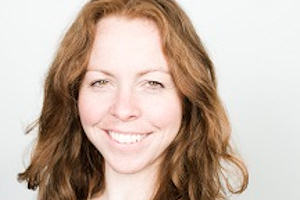University medic attends African Ebola volunteer session
17 Oct 2014
A medic based at the University of Manchester has completed an induction session as she prepares to travel to West Africa to help the fight against Ebola

Dr Amy Hughes, who works as a Clinical Academic Lecturer in Emergency Response at the University, attended the session at the Department of Health in London along with other health professionals who have expressed an interest in traveling to Sierra Leone.
The session took place on Wednesday, 15 October and Dr Hughes helped to run the training session given by officials on what to expect on the ground in affected areas.
As part of her work within the University’s Humanitarian and Conflict Response Institute, Dr Hughes is an experienced volunteer to international emergencies, having previously travelled to Sri Lanka to help with the recovery from the aftermath of the conflict there and to the Philippines in the wake of Typhoon Haiyan.
Speaking to The Telegraph last month, she said: “I’ve been involved with humanitarian work for the past six years. I love the challenge it presents and the privilege of engaging with different communities.
“Of course we will be apprehensive, and it is always a shock when you are first confronted with the devastation. We will be subjected to sights unlike anything we’ve encountered back home.”
As well as working for the University, Dr Hughes is also an emergency clinician at Derriford Hospital in Plymouth and is heavily involved in the development of the UK International Emergency Trauma Register and the training of its clinicians.
The Deputy Director of the Humanitarian and Conflict Response Institute, Professor Tony Redmond OBE, himself experienced in leading teams to disaster areas, said: “Amy is a hugely dedicated professional and has the skills and passion to make a real difference in an area where resources are stretched to breaking point.
"The response from NHS professionals from across the UK has been very impressive. There is tremendous altruism within the NHS. When people volunteer like this to travel overseas it's also important to acknowledge their colleagues who cover for them here when they are away. It’s a wonderful effort all round.”
Dr Hughes concluded: “In West Africa we will be on the front line, but well-rehearsed in how to reduce the risk of transmission with strict clinical protocols in place. It is all about understanding the Ebola virus, the community infrastructure and the culture and context in which we are working and collaborating with local and international teams already on the ground.”
The volunteer effort is being co-ordinated by UK-Med which is based within the Humanitarian and Conflict Response Institute with the assistance of the Department of Health, the Department for International Development and the NHS.
